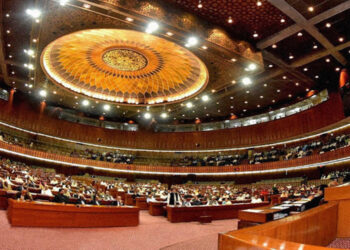Asiya (AS) the wife of Pharaoh is one of the excellent examples of how adversity brings out the best in people. The Holy Prophet Muhammad (SAW) mentions four women who had perfect faith or iman, Maryam (AA) mother of Jesus (AS), Hazrat Khadija (RA), Hazrat Fatima (RA), and Asiya (AS). Imagine the best non-prophet at that time Asiya (AS) is married to Pharaoh, a tyrant.
Did Asiya (AS) ever ask Allah (SWT) why He (SWT) decreed Pharaoh to be her husband? No, we never read about Asiya (AS) lamenting to Allah (SWT) about her predicament of being married to a tyrant. However, looking back in hindsight, can we say with any certainty that Asiya (AS) would have been Asiya (AS) without Pharaoh? Would Asiya (AS) have perfected her faith without Pharaoh? We don’t have the answers to these questions.
The one time we hear Asiya’s (AS) voice in the Holy Quran occurs when Pharaoh is killing her in the worst way and she (AS) makes supplication or dua to Allah (SWT), “And Allah sets forth an example for the believers: the wife of Pharaoh, who prayed, “My Lord! Build me a house in Paradise near You, deliver me from Pharaoh and his ˹evil˺ doing, and save me from the wrongdoing people.” (Surah At-Tahrim Ayat 11). We immediately notice in this dua that Asiya (AS) asked for Allah (SWT) before Jannah meaning please replace Pharaoh with You (SWT) and this Pharaoh’s palace with a palace in Jannah. Before the rock that crushed Asiya (AS), she (AS) already saw her place in Jannah and began to laugh as Allah (SWT) lifted her soul before the rock hit her body.
Asiya’s (AS) story illustrates to us that one of the great tests of this world is the uncertainty of it all. Our lives in this world are in a constant trial with one problem after the other and so whenever we get time to catch our breaths, another challenge occurs. Therefore, we have a choice to make, we can feel like a person that is rolling down the hill or place our trust in Allah (SWT) to take care of our affairs.
Undoubtedly, it is always easier to counsel and console others in difficult and sad times than ourselves. When someone is trying to console us, usually our faculties such as hearing shut down but we should let the words of the Quran and our Nabi (SAW) be the input in moments of adversity.
Also, hardships and difficulties shape the character and nature of a community or society. For example, if we imagine that the Prophet (SAW) and the Sahaba didn’t have to migrate or make hijrah, Madinah would never exist as we know it today. How can we envisage Islam without Madinah? It’s impossible to contemplate this.
What if the battle of Uhud never occurred? We would never learn the lessons on the importance of discipline, and respect of the commander’s orders, war strategy, and tactics, the importance of collective interest over personal ambitions, and how Allah (SWT) helps the believers when they are on the right path. Even today, we continue to learn these lessons.
Some of our closest friends in life are those with who we went through hardship and therefore,
envision if the battle of Khandaq or trench never happened? Think about the relationship and camaraderie developed between our Nabi (SAW) and Sahaba in the trench facing the highest level of uncertainty and death. A defeat in this battle would have meant the end of Madinah and thus, the end of Islam but the Prophet (SAW) and Sahaba didn’t just construct a trench, they ended up creating a new world that we still today benefit from. It’s unbelievable the many stories, legends, and lessons that originated from the battle of Khandaq. Salman al-Farsi (RA) would not be Salman al-Farsi (RA) if it weren’t for the trenches as the digging of the trenches was his idea. Furthermore, without Khandaq, Salman al-Farsi (RA) would never hear our Nabi (SAW) describe him as part of his family or Ahl ul-Bayt. These incidents of resilience displayed by the Prophet (SAW) and Sahaba provide us with many lessons.
In the end, we must always be grateful to Allah (SWT) during both hardships and times of ease. We must remember that Allah (SWT) has created humans to have the ability to recover, be resilient, and to grow. Moreover, we must allow Allah (SWT) to wash our souls like the one who washes or gives the ghusl to the dead bodies for burial.



























